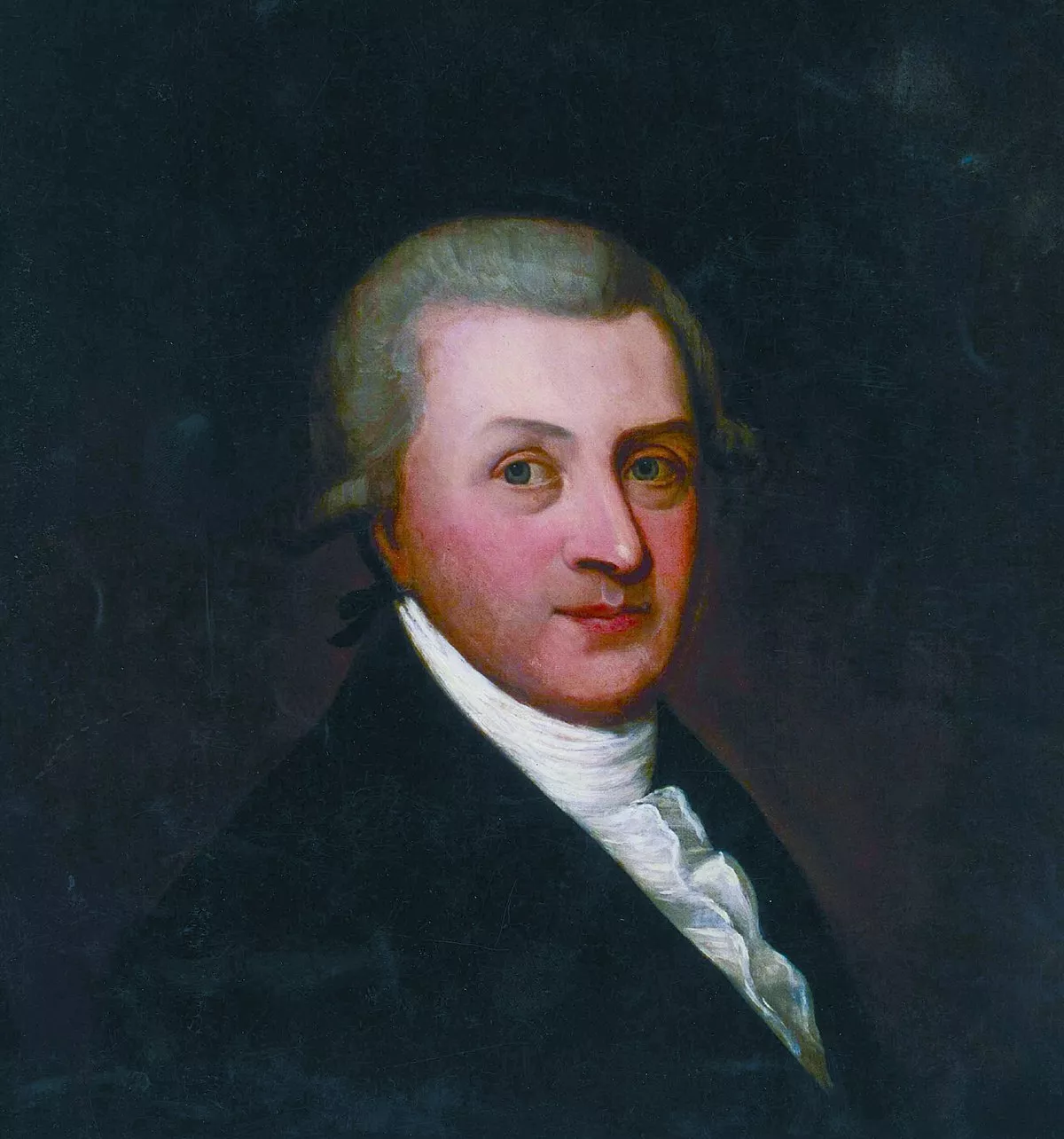 1.
1. Arthur Guinness was born in Ardclogh, near Celbridge, County Kildare, in 1725.

 1.
1. Arthur Guinness was born in Ardclogh, near Celbridge, County Kildare, in 1725.
Arthur Guinness's father was employed by Arthur Price, a bishop of the Church of Ireland.
Arthur Guinness himself was later employed by Price, and upon his death in 1752, both he and his father were bequeathed funds from Price's will.
Arthur Guinness then worked at his stepmother's public house before founding a brewery in Leixlip.
In 1759, during a financial crisis that created an abundance of affordable property, Arthur Guinness moved to Dublin and purchased an abandoned brewery from the Rainsford family.
Outside of his brewery, Arthur Guinness was socially and politically active.
Arthur Guinness was largely supportive of Catholic rights in Ireland but opposed the Irish Rebellion of 1798.
Guinness and his wife had ten children together, and upon Guinness's death in 1803, his son Arthur Guinness II inherited the brewery and all operations.
DNA testing run by Trinity College Dublin suggests that Arthur Guinness's ancestors were actually another County Down family, the McCartans, who lived in a village called Guiness outside Ballynahinch.
Arthur Guinness was the first of five children born to Richard and Elizabeth.
Likely born on Price's Oakley Park estate, Arthur Guinness was named for the vicar, who served as his godfather.
Arthur Guinness's exact date of birth is disputed by historians: while many sources suggest that he was born on 24 September 1725, the Arthur Guinness Company formally declared in 1991 that their founder's date of birth was on 28 September.
Arthur Guinness's gravestone, meanwhile, states that he was 78 years old upon his death in January 1803, making it possible that he was born in 1724 rather than 1725.
The occupation would have required Arthur Guinness to be literate, versed in arithmetic, and capable of writing, all opportunities that were rare for non-nobles.
The origin of Arthur Guinness's yeast is unknown, but is likely from Kildare and possibly originated from the White Hart Inn.
In 1759, Arthur Guinness moved to Dublin, leaving his Leixlip property in the care of his brother Richard.
Arthur Guinness was interested in acquiring a brewery at St James's Gate that had been abandoned nine years prior.
Arthur Guinness began tentatively adding porter to his ale-heavy brewery in 1778, and by 1783, it dominated his marketing, with Arthur Guinness telling a parliamentary committee, "a porter buys none but the best, as none else will answer".
Arthur Guinness served first as warden and later as master of the Dublin Corporation of Brewers, a position through which he would frequently argue on behalf of the brewing industry to the Irish Parliament.
Two years after the tax code was altered, Arthur Guinness became the official beer purveyor of Dublin Castle.
Elizabeth Arthur Guinness married Frederick Darley in 1809, the same year that he became the Lord Mayor of Dublin.
Arthur Guinness was educated at Winchester College, the University of Oxford, and Trinity College Dublin before serving as the rector of St Werburgh's Church, Dublin, until his death in 1841.
John Grattan Arthur Guinness, who had previously served in the East India Company, joined the brewery company as a sales agent in 1824, but left the position after his wife's death.
In 1811, a bankrupt Edward Arthur Guinness fled to the Isle of Man as protection from his debtors.
Arthur Guinness was politically active throughout his life, both as a supporter of his cousin-in-law Henry Gratton and as a member of the Dublin Corporation.
Arthur Guinness was additionally a lifelong member and secretary of the Kildare Knot, a dining club made up of wealthy individuals regardless of religion.
Arthur Guinness was opposed to the Irish Rebellion of 1798, a rebellion of Presbyterian radicals who wished to overthrow British rule in Ireland.
Arthur Guinness disliked both the economic disruption that the rebellion brought, as well as the violence.
Arthur Guinness was a deeply religious man whose personal motto was Spes Mea in Deo, Latin for "My Hope is in God".
Arthur Guinness served as treasurer and later Governor of Meath Hospital and frequently donated money to St Patrick's Cathedral, Dublin.
In 1786, Arthur Guinness opened the first Sunday school in Dublin.
Arthur Guinness believed that the duty of the wealthy and powerful was to set a strong moral example for their citizenry and looked unfavourably at what he viewed as displays of excess.
Arthur Guinness once protested the traditional feast of a new alderman, worried that the occasion would lead to drunken impropriety, and instead suggested that the money set aside for the banquet be donated to The King's Hospital.
Arthur Guinness was particularly opposed to the culture of duelling among the Irish elite, which he viewed as a deadly sport masquerading as honour, but his efforts to eliminate or reduce duelling were unsuccessful.
Arthur Guinness continued to expand and renovate the brewery throughout his life: by 1790, two flour mills in Kilmainham, known as the Hibernian Mills, were constructed and fully operational.
Arthur Guinness died on 23 January 1803 at the family estate of Beaumont of unknown causes.
In 1997, Arthur Guinness PLC merged with Grand Metropolitan to form the beverage conglomerate Diageo.
The year prior, tangentially to Arthur's Day, a statue of Guinness was erected in Celbridge.